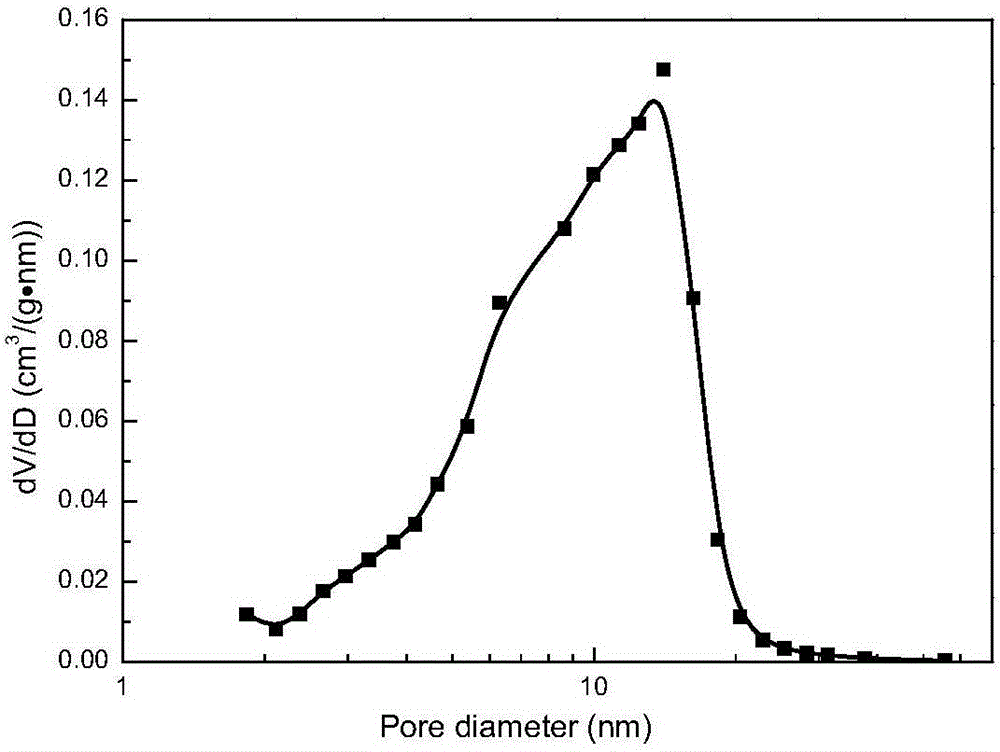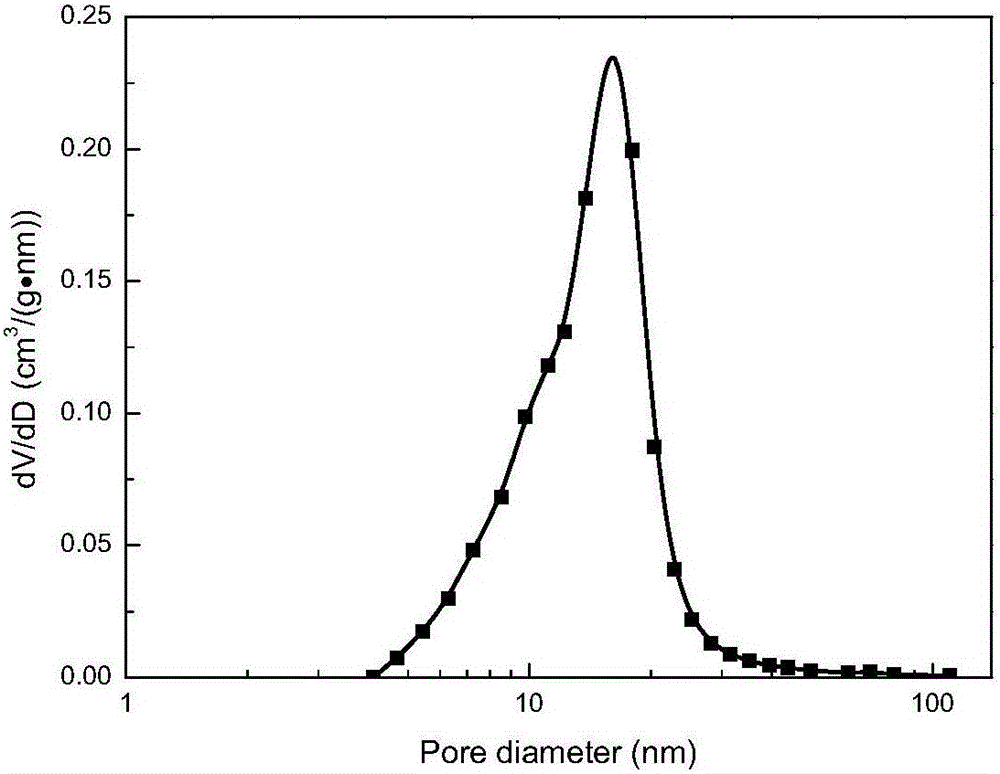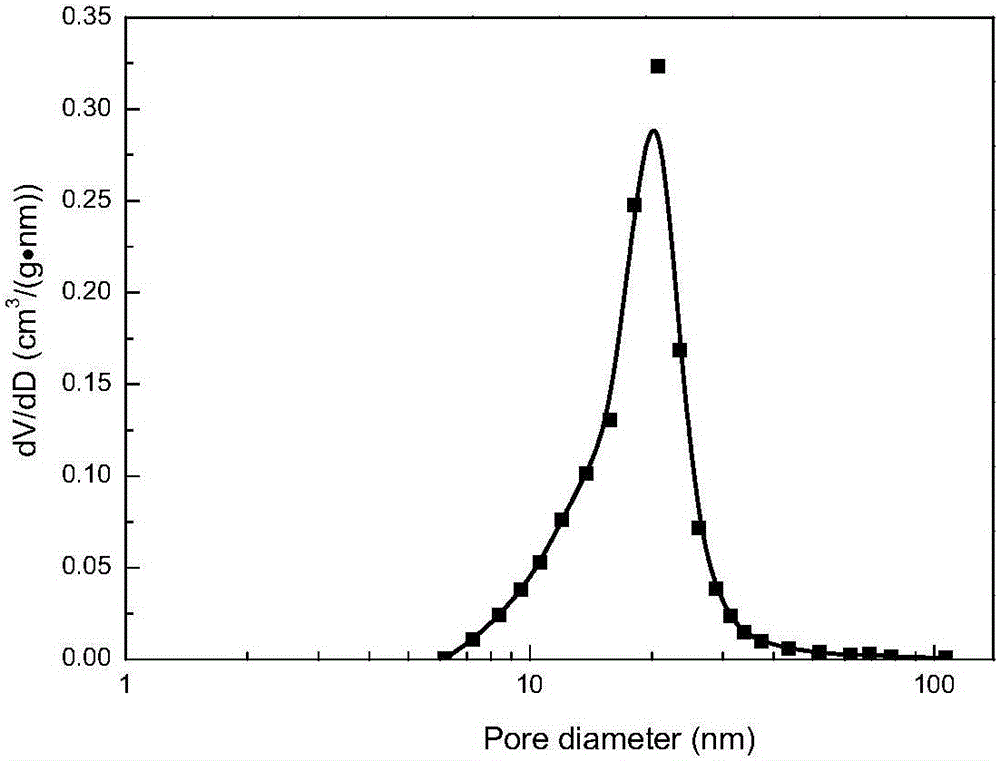Hole-protecting drying method for porous material
A porous material and drying method technology, applied in the field of porous materials, can solve the problems of high equipment cost, large loss of entrainer, high cost, etc., and achieve the effect of simple and easy control of the process, mild operating conditions and low price
- Summary
- Abstract
- Description
- Claims
- Application Information
AI Technical Summary
Problems solved by technology
Method used
Image
Examples
Embodiment 1
[0026] Embodiment 1: The operation steps are: a certain amount of silica gel is placed in a heated kettle with stirring; ethyl acetate is selected as the displacing agent, and n-butanol is used as the pore-preserving agent, and the volume ratio is 5:0.1:1 ( Displacing agent: pore-preserving agent: water content in the gel) is added to the solvent; the heating kettle is heated to boiling (about 71° C.), and refluxed for 2 hours. This process replaces most of the water in the silica gel; continue heating to reduce Pressure distillation to obtain dry silica powder.
[0027] Product related data as table 1 As shown, the pore size distribution Such as figure 2 shown.
Embodiment 2
[0028] Embodiment 2: The operation steps are the same as in Embodiment 1. The difference is that the solvent is added according to the volume ratio of 5:0.3:1 (displacing agent: pore protecting agent: water content in the gel). Product related data as table 1 As shown, the pore size distribution Such as image 3 shown.
Embodiment 3
[0029] Embodiment 3: The operation steps are the same as in Embodiment 1. The difference is that the solvent is added according to the volume ratio of 5:1:1 (displacing agent: pore protecting agent: water content in the gel). Product related data as table 1 As shown, the pore size distribution Such as Figure 4 shown.
PUM
| Property | Measurement | Unit |
|---|---|---|
| specific surface area | aaaaa | aaaaa |
Abstract
Description
Claims
Application Information
 Login to View More
Login to View More - R&D
- Intellectual Property
- Life Sciences
- Materials
- Tech Scout
- Unparalleled Data Quality
- Higher Quality Content
- 60% Fewer Hallucinations
Browse by: Latest US Patents, China's latest patents, Technical Efficacy Thesaurus, Application Domain, Technology Topic, Popular Technical Reports.
© 2025 PatSnap. All rights reserved.Legal|Privacy policy|Modern Slavery Act Transparency Statement|Sitemap|About US| Contact US: help@patsnap.com



